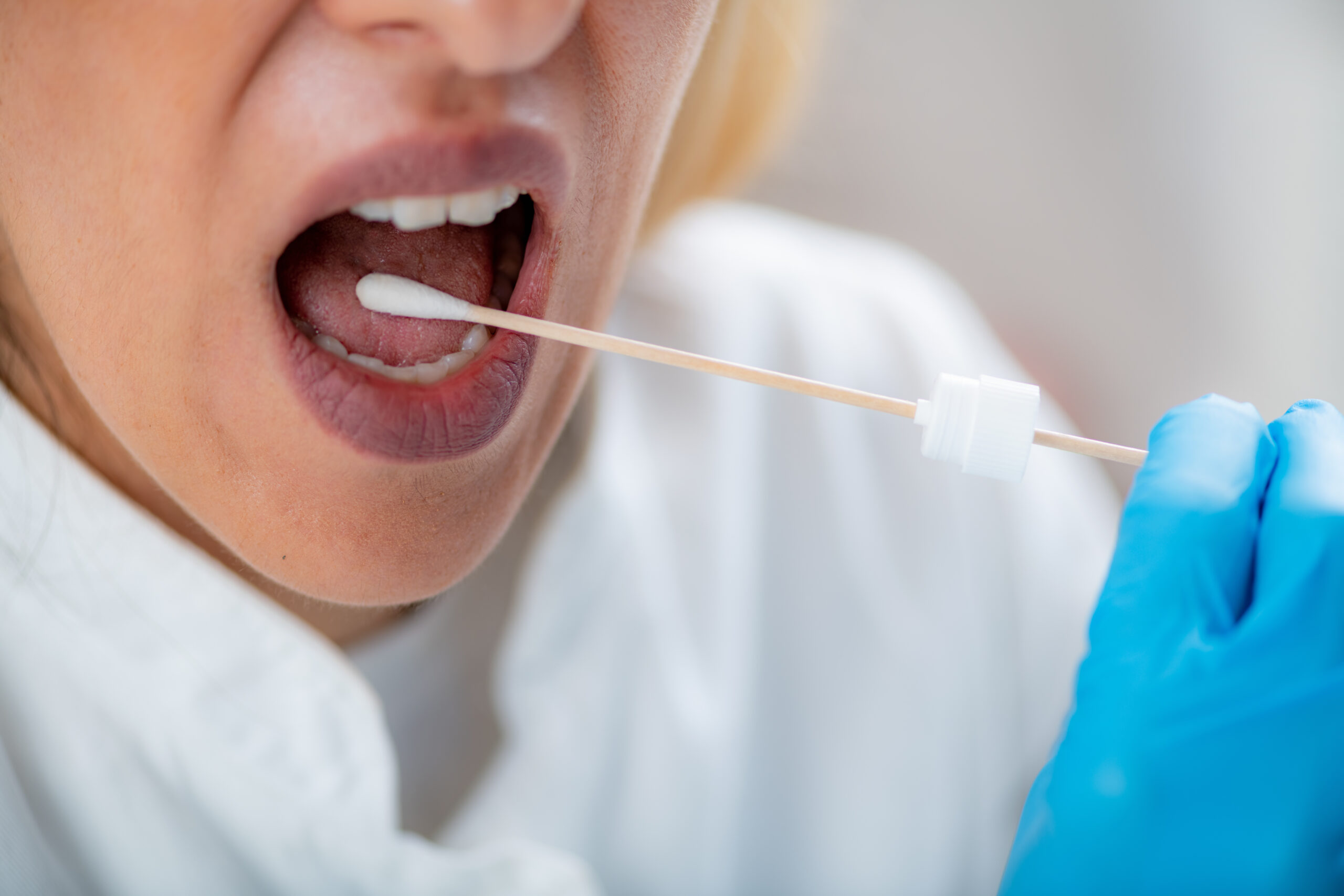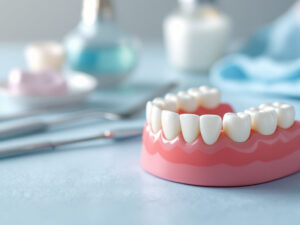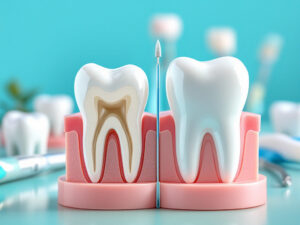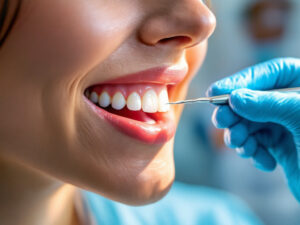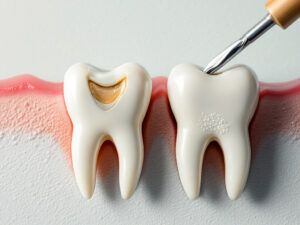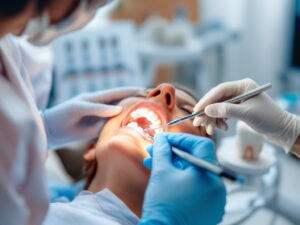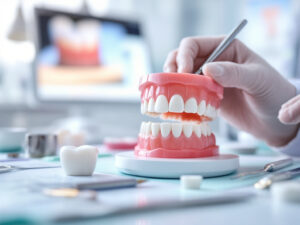Recognize bleeding gum emergencies
When you first notice that your gums are bleeding, it is natural to wonder whether you need bleeding gum emergency care. Bleeding gums can be alarming, especially if the bleeding seems persistent or is accompanied by swelling, pain, or other symptoms. However, not every instance of gum bleeding indicates a dental emergency. Sometimes, a small amount of blood after you brush or floss can result from brushing too hard or reinforcing new flossing techniques. The key is to stay informed about which signs point to a genuine cause for immediate attention and which situations can be managed at home.
Minor gum bleeding that stops quickly often stems from issues like an overly vigorous brushing habit or adjusting your oral hygiene routine. In such cases, you can usually address the problem independently by brushing more gently or adopting a softer-bristled toothbrush. If you are pregnant, hormonal changes may also increase your gums’ sensitivity to plaque build-up. According to research from Advanced Sedation Dentistry, if your gums bleed only once in a while and the bleeding subsides almost immediately, it is usually not considered a dental emergency. Nevertheless, persistent or painful bleeding that does not resolve may hint at a more significant underlying problem.
When you experience ongoing gum bleeding for more than two weeks, or if the bleeding is accompanied by intense discomfort, swelling, or a foul taste in your mouth, it is wise to schedule an evaluation with a trusted dentist. The Cleveland Clinic recommends seeking professional dental care promptly if bleeding persists for an extended period, as early diagnosis and treatment can prevent more severe complications down the line. Being aware of these warning signs empowers you to safeguard both your oral health and your overall wellbeing.
Understand causes and risks
Gum bleeding can arise from many potential causes, ranging from mild irritations to serious health conditions. Pinpointing the root reason behind your gum issues will help you determine whether you need immediate intervention or a more routine plan of care. Some of the more common causes include the following:
- Gingivitis and gum disease: Often referred to as the number one reason for bleeding gums. Plaque buildup at the gum line leads to swelling, redness, and inflammation, which can develop into more advanced forms of periodontal disease if left untreated.
- Vitamin deficiencies: A deficiency in nutrients like vitamin C or vitamin K is frequently linked to bleeding gums. The Cleveland Clinic advises maintaining a balanced diet with sufficient vitamins and minerals to protect and fortify gum tissue.
- Hormonal fluctuations: Pregnancy and menopause can make gums more susceptible to bleeding by increasing their sensitivity to bacterial plaque. This heightened sensitivity can transform mild issues into more urgent concerns if plaque is allowed to accumulate.
- Blood-clotting disorders: In some cases, gum bleeding may indicate issues such as hemophilia or other clotting disorders. Consulting with a dentist or physician ensures that you determine whether an underlying disorder is contributing to your symptoms.
- Poor oral hygiene habits: Vigorously brushing your teeth, using a hard-bristled brush, or forgetting to floss regularly can irritate your gums. Brushing too harshly is a leading factor in minor gum bleeding. A softer approach will often make a big difference.
If your gum bleeding is sporadic and minor, adopting proper oral hygiene methods and making small lifestyle modifications can mitigate the problem. However, when bleeding is frequent or accompanied by additional symptoms, a more extensive evaluation becomes vital. MedlinePlus notes that untreated gum disease can lead to severe complications, including tooth loss, infection, and systemic health concerns. Being educated about potential causes will help you know when to turn to a reliable dental practice like Cloninger Dentistry, where you and your loved ones can receive comprehensive family dental care, preventative hygiene, and cosmetic dentistry needs in a supportive environment.
Apply at-home first aid
Before rushing off for emergency dental care, explore some simple at-home steps that can help control mild gum bleeding. When bleeding presents itself without additional serious symptoms, you may find relief through calm and informed first aid. According to Parkwood Dental, there are several measures you can take initially:
-
Rinse gently with warm salt water
Mix about half a teaspoon of salt in a glass of warm water. Swish and gargle gently for about 30 seconds. Salt water helps soothe irritated gum tissue and reduce inflammation by balancing the oral environment. -
Use sterile gauze or tissue
If you see bleeding, gently press a piece of clean, sterile gauze or tissue against the affected spot. Steady, light pressure for a minute or two can slow or stop the bleeding in many cases. -
Try a cold compress
Cooling the area helps reduce puffiness and tenderness. Place a wrapped ice pack or cold compress along the cheek near the bleeding gum for several minutes. A cold compress also helps minimize inflammation linked to more intensive gum bleeding. -
Adjust oral care habits
Switch to a soft-bristled toothbrush, which puts less stress on your gums. You can also practice gentle brushing motions. If flossing triggers bleeding, try flossing carefully with a waxed floss that glides more smoothly between teeth. -
Avoid irritants
Minimize smoking, hard foods, and sugary snacks, all of which can aggravate inflamed gums or cause further irritation. If you notice that a recently introduced mouthwash or toothpaste is contributing to gum irritation, consider switching to a milder product.
These immediate measures can offer short-term relief. However, if the bleeding does not stop or if you spot other warning signs such as severe pain, swelling, or signs of infection, you may need professional intervention. Staying calm, evaluating your condition, and applying gentle first aid techniques can prove crucial in preventing complications.
Prevent long-term gum damage
When gum bleeding is persistent, it can signal gum disease, which can progress from mild gingivitis into advanced periodontitis without timely treatment. Taking swift action to prevent long-term damage allows you to maintain optimal oral health without risking tooth or bone loss. Leading Edge Dental Center warns that unaddressed gum disease has far-reaching implications, potentially increasing your risk for cardiovascular disease and worsening diabetes due to the chronic inflammation it fosters in your body.
Implementing healthy daily habits protects both your gum line and your general wellbeing. Consider adding these prevention-focused steps to your routine:
- Follow a thorough oral hygiene schedule: Brush at least twice daily using a soft-bristled toothbrush and gentle circular motions. Floss daily to eliminate plaque between teeth.
- Schedule regular professional teeth cleaning: Removing hardened plaque is often beyond the scope of simple home care. Professional cleanings help eliminate stuck-on tartar that, if left behind, can lead to gum disease.
- Stay hydrated and mindful with your diet: A balanced diet that includes vitamins C and K is essential for strong gums. Citrus fruits, leafy green vegetables, and other nutrient-rich foods strengthen your immune response, making it easier for your body to fight off infections that cause bleeding gums.
- Keep track of changes: If you notice persistent bleeding, swelling, or loosening teeth, do not ignore these warning signs. Seeking a prompt diagnosis gives you a higher chance of preserving your natural teeth and maintaining healthy gums.
- Explore specialized treatments: If early signs of gingivitis appear, your dentist may suggest gum disease treatment or a periodontal maintenance cleaning if inflammation around the gum line has advanced. Early intervention helps avert more invasive procedures later.
Addressing gum concerns early can play a critical role in preventing further tissue damage. Meanwhile, you can keep your gums safe from escalation by seeing your dentist regularly and adopting consistent oral hygiene practices. The path to lasting gum health involves a mindful, preventative routine that meets your specific oral health requirements.
Access professional dental services
If you have tried some home remedies and your bleeding persists, or if you notice other serious symptoms such as persistent bad breath, heightened sensitivity, swelling, or even loose teeth, professional dental attention should be your next step. Consulting with a dentist who offers comprehensive care, preventive services, and emergency assistance ensures you receive a targeted solution quickly.
Cloninger Dentistry provides a wide range of services tailored to match your unique needs:
-
Routine evaluations
Regular checkups help catch early bleeding issues before they escalate. A routine dental checkup includes carefully looking for subtle changes in gum tissue and plaque accumulation. -
Deep cleaning and periodontal care
Gum disease can rapidly worsen if lingering plaque develops into hardened tartar. Professional deep cleaning sessions remove these deposits from under your gum line. If you require ongoing support, additional interventions like periodontal maintenance cleaning can reduce your risk of worsening inflammation. -
Diagnostic imaging
Assessing inflamed gums at the root level often involves advanced diagnostic methods. Tools such as digital xray imaging and intraoral camera examination enable your dentist to spot hidden areas of plaque, infection, or changes in the bone structure. -
Addressing complications
When bleeding gums are tied to extensive tooth decay, you may need restorations or extractions. Procedures like tooth extraction service or dental crown placement are sometimes essential for salvaging the overall integrity of your mouth. In other scenarios, root canal therapy might be recommended to clear up infections deep within the tooth. -
Emergency care
Severe and sudden gum bleeding can be unsettling. Having emergency dental care on call ensures you receive rapid attention if you find yourself dealing with acute gum pain, uncontrolled bleeding, or other critical oral health concerns.
Thorough professional care helps identify any systemic health conditions that might be contributing to or exacerbating your gum bleeding. Dentists are trained to evaluate your overall oral health and make personalized recommendations, including referrals to other medical professionals if they suspect an underlying illness such as a blood-clotting disorder. Keeping up with regular dental appointments, following a custom treatment plan, and adhering to a preventative routine can halt or reverse gum complications.
Choose Cloninger Dentistry now
Addressing your gum health in a timely manner is pivotal for preventing irreversible damage. From mild bleeding that you can manage at home to more advanced or persistent gum issues, Cloninger Dentistry is prepared to walk with you every step of the way. When you or your loved ones choose our comprehensive family dental care practice, you gain access to a supportive environment that puts your comfort at the forefront.
At Cloninger Dentistry, we are firmly dedicated to ensuring you receive the support necessary for regaining and maintaining healthy gums. Here is why you can choose us with confidence:
- Individualized treatment plans: We recognize that not all gum bleeding stems from the same cause. Our team ensures that every recommendation reflects your unique situation, whether it involves routine cleanings or specialized procedures.
- Comprehensive care solutions: Beyond handling bleeding gum emergencies, we supply everything from professional teeth cleaning, oral cancer screening, and toothache pain relief to advanced procedures like surgical tooth extraction or porcelain crown service. This makes our practice a one-stop destination for the entire family’s needs.
- Preventative hygiene focus: Healthy gums start with preventive measures. We encourage regular exams, fluoride treatment, and pediatric dental care to help patients of every age defend against cavities, gum disease, and other dental troubles.
- Compassionate, knowledgeable guidance: We deliver a caring approach that recognizes the stress associated with oral health issues. Our staff offers empathetic understanding alongside professional expertise, ensuring that you always feel supported and informed about your treatment options.
We embrace a semi-formal tone that is both accessible and professional, so you can be comfortable and confident as we address your family’s oral care. Whether you are seeking a quick consultation for mild gum bleeding or looking for a long-term relationship with a family-centered dental practice, Cloninger Dentistry stands ready to provide resources and assistance that empower you to keep smiling brightly.
Common questions about bleeding gums
Below, you will find answers to five frequently asked questions related to bleeding gum emergency care, according to the extensive research done by organizations like Cleveland Clinic, Parkwood Dental, and others.
-
Why do my gums bleed when I brush my teeth?
Gums that bleed during brushing are often inflamed from excess plaque or gingivitis. Adopting proper brushing technique with a soft-bristled toothbrush can reduce trauma to the gums. You might also have an early-stage gum disease that needs professional assessment. If the issue continues, schedule a new patient dental exam to pinpoint the cause. -
Are bleeding gums always a dental emergency?
No, not always. Minor bleeding can arise from brushing too aggressively, new flossing habits, or hormonal changes. If bleeding is minimal and stops quickly, try switching to gentler cleaning methods. However, if bleeding persists over two weeks, becomes severe, or is accompanied by pain and swelling, it may be time to contact an emergency dental care provider. -
Can stress cause bleeding gums?
Emotional stress can weaken your immune system, potentially making it tougher for your body to fend off gum infections. Research from Healthline suggests that extra stress might amplify inflammation in your gums or even worsen an existing gum condition. While stress alone rarely causes bleeding gums, it can exacerbate underlying issues like gingivitis. -
What home remedies can reduce mild bleeding gums?
Consider rinsing with warm salt water daily, using a cold compress on swollen areas, or brushing gently with a soft-bristled brush. Keeping a nutritious diet that includes plenty of vitamins C and K may also restore gum strength. However, if bleeding does not improve or if you notice persistent pain or foul odor, you should see a professional. Our private dental consultation helps identify tailored solutions for your bleeding gums. -
When do I need to see a dentist about bleeding gums?
You should make an appointment if your gum bleeding lasts more than two weeks or if you experience severe pain, swelling, or other worrisome symptoms. In these cases, a specialized exam or gum disease treatment could be vital. Early intervention from a qualified team, such as those at Cloninger Dentistry, can protect you from further complications such as tooth loss and serious infections.
Taking prompt, preventative actions can help you gain control of bleeding gums before they become a bigger problem. By combining proper at-home oral care, regular clinical checkups, and specialized treatments, you can promote a healthy smile and guard against long-term or permanent damage.
Remember that the indicators of gum bleeding can vary widely from person to person. While some cases might not demand immediate professional care, others can signal a more serious condition requiring comprehensive intervention. By staying attentive to the frequency, duration, and severity of your bleeding, you keep yourself one step ahead of silent but potentially significant issues.
Ultimately, managing your gum health is about understanding the signs, addressing them quickly, and maintaining an ongoing preventative routine. Cloninger Dentistry is here to guide you. We believe in comprehensive, empathetic care that keeps you and your loved ones feeling comfortable and motivated to achieve consistent oral health success. Through bleeding gum emergency care, as well as every day preventive and cosmetic services, our mission is to help you safeguard and restore your healthy, confident smile.

